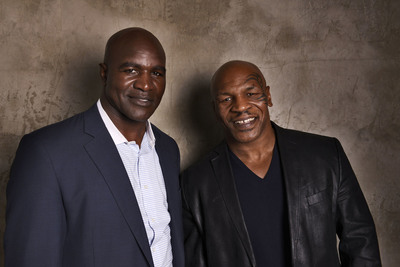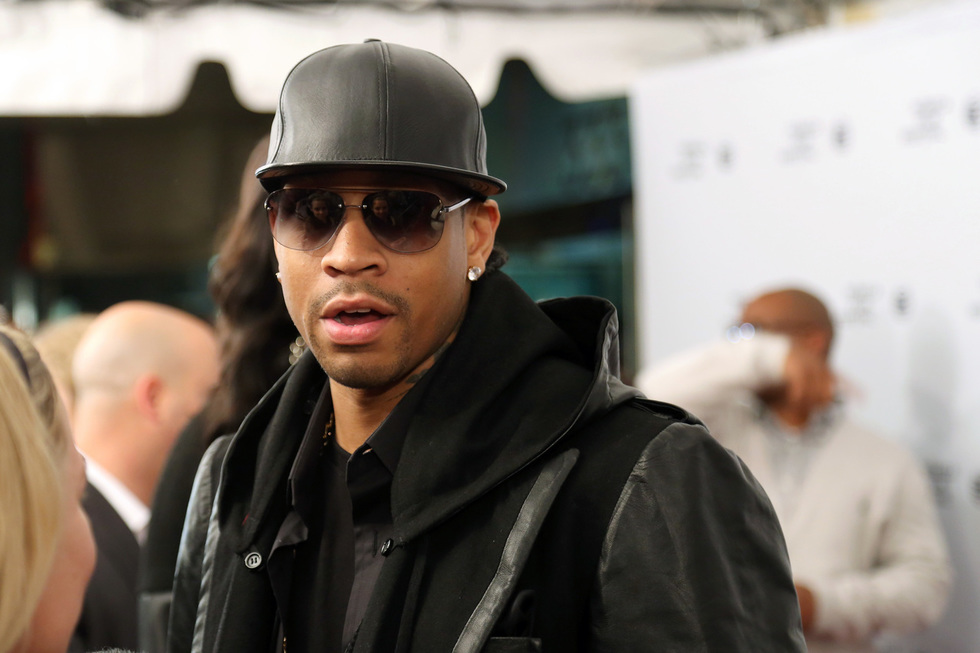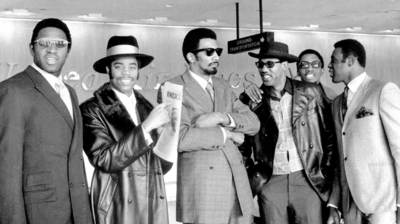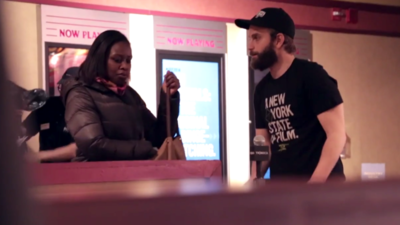
BY MATTHEW SHEPATIN |
The Six Best Allen Iverson Quotes From the ‘Iverson’ Premiere
“I can't be the Allen Iverson that you want me to be. The only Allen Iverson I can be is the Allen Iverson that I am. If you love that, then cool. If you don’t, shit, fuck it."

On June 26, 1996, the Philadelphia 76ers made Allen Iverson the #1 overall pick in the NBA draft. Since that day, the undersized guard has thrilled fans with his gutsy style of play, complete with fearless drives to the rim and a willingness to sacrifice his body every night.
He’s captivated them with his lightening-fast, havoc-creating attack on defenses around the league.
He’s inspired them with his signature look and style, introducing hip-hop culture into the NBA with his tattoos, cornrows and “Me Against The World” attitude.
He also infuriated many people because of that very same look and style, most notably then-commissioner David Stern who instituted a dress code for players.
He angered them by getting into trouble with the law, including a 1997 arrest for a concealed weapon for which he pleaded no contest and had to perform 100 hours of community service.
He disappointed them by missing practices, arriving late to games, and making an unreleased hip-hop album that contained lyrics derogatory towards women and gays.
For the past 28 years, the player known as “The Answer” has steadfastly refused to answer to his fans or his detractors. In the new documentary Iverson, which premiered Sunday on the last day of the 2014 Tribeca Film Festival, Iverson speaks out on the highs and lows of his career.
That in itself is news. However, if you’re expecting the soul-searching of a Mike Tyson, dream on. AI is as unapologetic as ever. Dude has fewer regrets than Frank Sinatra. And as Stuart Smiley would say, “That’s okay.” Hell, Tupac Shakur died giving the world the finger, as did Sid Vicious, and it’s why their T-shirts are still flying off the store shelves on St. Marks Street.
Contrary to what some might believe, not every documentary has to be about coming to terms with the past or finding redemption after a life of squandered opportunity. To be fair, Iverson makes it clear that his focus these days is on being the best Dad he can possibly be. But he still studies at the Kanye West “Y’all Just Can Handle Me” School of Arts.
Good. Life needs more unapologetic rebels who refuse to go on Oprah and have their “aha” moment, and while Beatty does a terrific job of showing how the 11-time All Star electrified fans as few others in league history (the segment on his famous crossover move on Michael Jordan is immensely enjoyable), the doc steers mostly clear of Iverson’s darker side, which seems to be a very deliberate choice - and one almost certainly influenced by the access given by the documentary's subject.
What the film does make clear is that Iverson carries an inner hardness and a distrust that comes from a tough upbringing in Hampton, Virginia as well as events like the bowling alley brawl that sent the promising high school hoops star to jail unjustly and nearly derailed his future.
What the documentary suggests is that the Allen Iverson we do know is a persona that he himself created. In one of the more revealing moments of the documentary, Iverson talks about creating an outfit and a style that would match the way he wanted to play the game — and ends up sounding a lot like Peter Parker. I wanted to look like a superstar, he explained. A skinny superstar, but a superstar.
The danger of having a persona is that it takes a lot of energy to live up to it – and in AI’s case a lot of money, cars and jewelry. And a good lawyer. It’s also hard to stop playing a role when it’s a role that has enabled you to survive against long odds, hard fouls and men twice your size. But just like Dumbo didn’t think he could fly without a feather, one gets the sense that the 2001 MVP thinks he would crash to earth without his gold chains.
Ironically, perhaps it’s those chains that have been weighing him down. Ask Iverson and he’d likely tell you that he doesn’t feel weighed down by anybody or anything. Never has.
And as Stuart Smiley would say, “That’s okay.”
At the sold-out world premiere screening on Sunday, the skinny superstar flew into Gotham City, dressed in a black leather cap, tinted sunglasses, big diamond earrings and, of course, a big gold chain. After the 97-minute film, he stuck around for a Q&A with the filmmakers and ESPN’s Scoop Jackson. Here are the 2001 MVP’s six best quotes from that discussion:
6. On what he sees watching his life story played out on film: “I see pain after going through what I went through when I was so young. But I see happiness. I see me overcome things that a lot of people would break down [from].”
5. On the ample screen time given to his longtime manager Gary Moore, who also served as executive producer of the film: “I thought it was a little bit about me. That shit don’t say Moore. It says Iverson.”
4. On the greatest gift God has ever given him: “My kids and my ex-wife Tawanna.”
3. On being closed off to the public: “I love a lot of people in my life and I don’t know everything about them. Do I look at them bad because they don’t share it with me? No. I feel the way I feel about them. And that’s that.”
2. On what he hopes is the documentary’s message: “The gift of this film is that it gives kids from my neighborhood, who go through what I went through, hope. If he did it, I can do it. The little dudes from around my way or little women from around my way, I want them to know they can survive regardless.”
1. On needing to satisfy others: “I can't be the Allen Iverson that you want me to be. The only Allen Iverson I can be is the Allen Iverson that I am. If you love that, then cool. If you don’t, shit, fuck it."
Want to hear this entire talk? Our friends at WNYC recorded it as a podcast! Listen here:
Matthew Shepatin is the author of three books, including, most recently, Marathon Man (St. Martin's Press) with running legend Bill Rodgers. He has written for The New York Post, Esquire, Playboy, Black Book Magazine, and The Village Voice. Follow him on Twitter @mshepatin.

